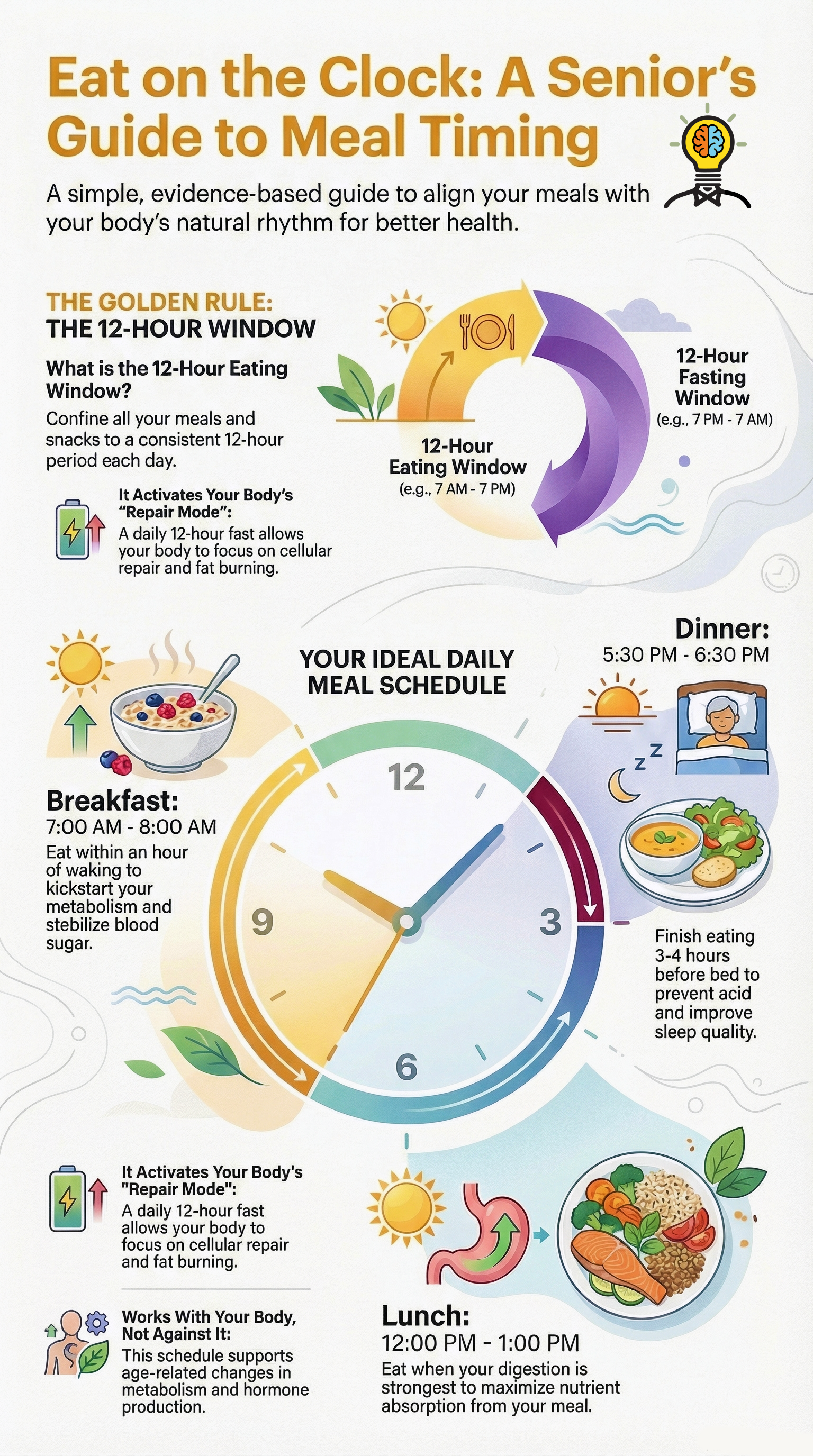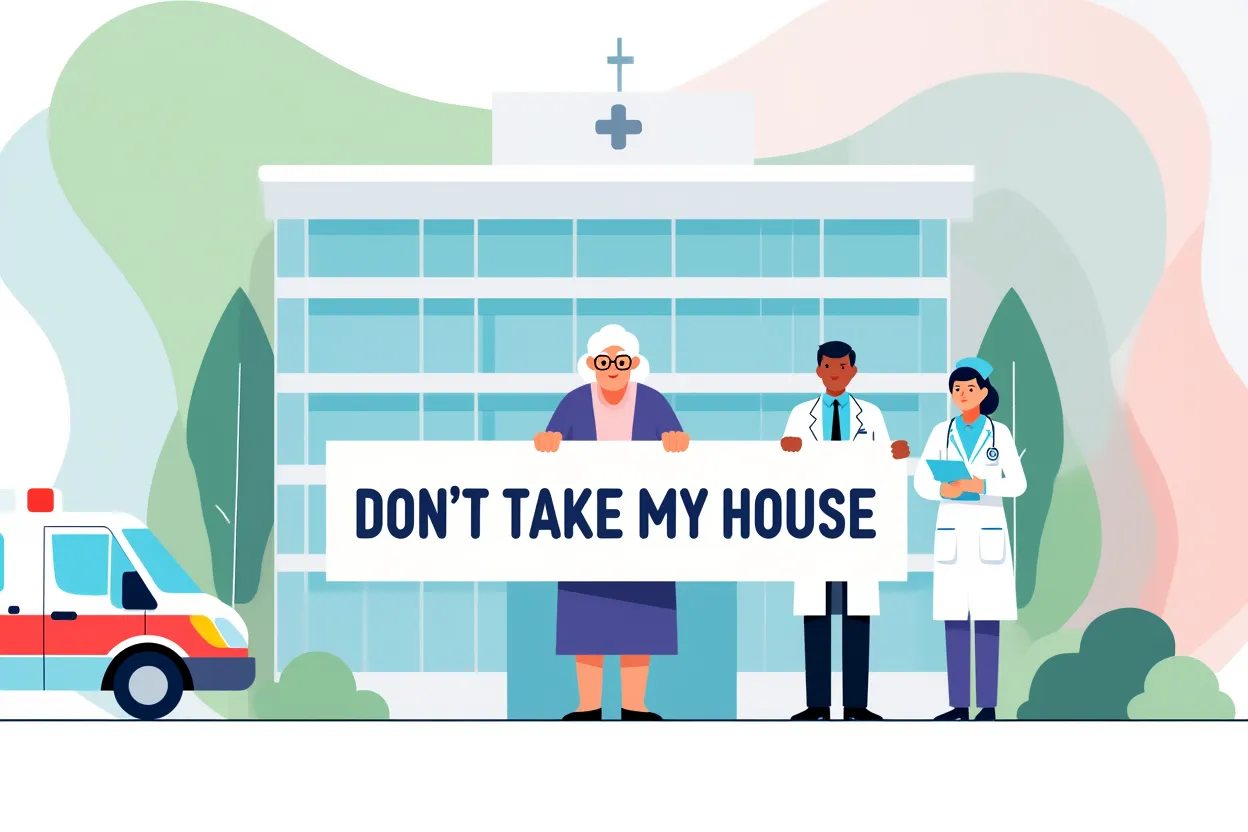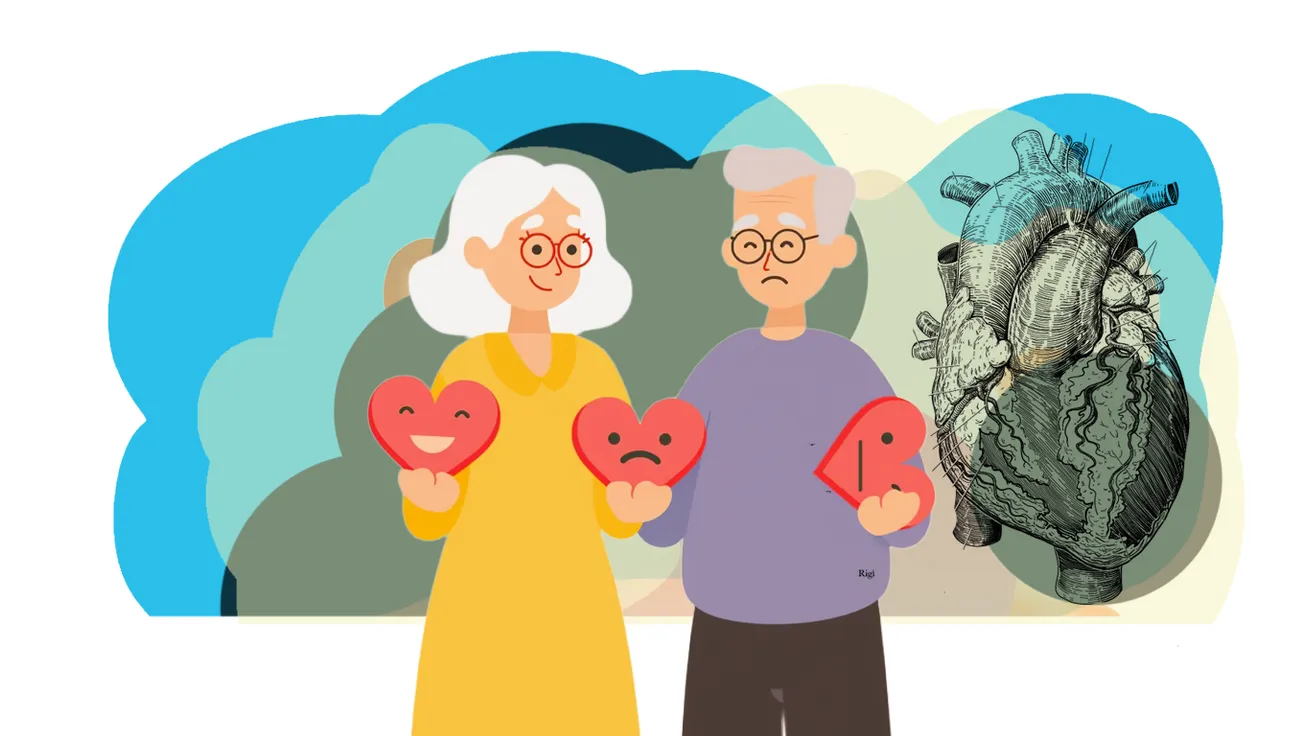The Takeaway
- Breakfast is best between 7:00 a.m. and 8:00 a.m. to kickstart energy and metabolism
- Lunch should be between 12:00 p.m. and 1:00 p.m. for blood sugar stability
- Dinner ideally lands between 5:30 p.m. and 6:30 p.m., with no big meals too close to bedtime
- Keeping meals on a consistent schedule supports digestion, sleep, and weight management
It’s 6:45 a.m., and Edna’s already sipping her coffee, flipping through her crossword puzzle, and waiting for her oatmeal to finish bubbling on the stove. "If I don’t eat by 7:30, I start feeling woozy," she says.
Turns out Edna’s on to something. According to experts, when older adults eat can matter just as much as what they eat. Your digestion, energy, weight, and even cognitive function can take a hit if meals are too far apart—or too close to bedtime.
A consistent meal schedule helps regulate your body’s internal clock, known as the circadian rhythm, which plays a big role in metabolism and hormone production as we age.
Let’s break it down.
Best Time for Seniors to Eat Breakfast: 7:00–8:00 a.m.
After a night of fasting, breakfast helps stabilize blood sugar and gives your brain and body the fuel it needs to get moving.
“The ideal time for seniors to eat breakfast is within an hour of waking,” says Amy Shapiro, RD, in an interview with The Healthy. For most, that’s between 7:00 and 8:00 a.m.
Older adults are also more prone to early waking hours and changes in appetite. If you’ve been up since 5:00 a.m., skipping breakfast until 10:00 can lead to energy crashes, shakiness, or irritability.
A good senior breakfast should include lean protein (like eggs or Greek yogurt), fiber (like oats or fruit), and healthy fat (like avocado or nuts). That combo helps keep blood sugar stable and your appetite in check until lunch.
Best Time for Lunch: 12:00–1:00 p.m.
Experts agree that lunch should fall about 4 to 5 hours after breakfast. For most seniors, that’s between noon and 1:00 p.m.
If you wait too long, you risk entering what some dietitians call the “hangry zone”—where blood sugar drops, and you’re more likely to overeat or grab processed snacks.
Shapiro notes that predictable, balanced meals are key for seniors. They help reduce strain on the digestive system and keep energy levels stable for the rest of the day.
Lunch is also a great time to load up on vegetables and whole grains, since digestion is typically strongest mid-day. Think grilled chicken salad, a tuna sandwich on whole-grain bread, or a lentil soup with a piece of fruit.

Best Time for Dinner: 5:30–6:30 p.m.
You’ve probably heard it before: eating dinner too late can mess with your sleep. For older adults—whose digestion naturally slows down in the evening—it’s especially true.
Most experts, including the National Institute on Aging, recommend eating 2–3 hours before bed. That means a dinner between 5:30 and 6:30 p.m. is ideal for those heading to bed by 9 or 10.
Later dinners can cause acid reflux, poor sleep, or next-day grogginess—especially if the meal is heavy on fats, red meats, or alcohol.
Seniors tend to sleep better when they eat a lighter dinner: think baked fish with steamed vegetables, a veggie stir-fry with brown rice, or a small bowl of soup and a side salad.
And if you’re still hungry later? A small snack, like a banana or a cup of warm milk, is perfectly fine and may even help you sleep.

Why Meal Timing Matters More as You Age
As we get older, our metabolism slows, and our digestive systems become more sensitive. Hormones like insulin and melatonin shift, too—which means blood sugar spikes and poor sleep are more common.
That’s why timing meals to support your body’s natural rhythms—not just your schedule—can make a difference. Regular meals can improve everything from:
- Weight management
- Energy levels
- Heartburn prevention
- Mental clarity
- Mood stability
Final Thoughts
Eating on a schedule isn’t about being rigid—it’s about being kind to your body. Seniors like Edna who prioritize well-timed meals often find they sleep better, move easier, and stay sharper.
Just remember: 7 a.m. for breakfast, noon for lunch, 6 p.m. for dinner—give or take. Your body will thank you for it. Here's a free guide you can print out and use.

Disclaimer: This article is for informational purposes only and is not intended as medical advice. Please consult your healthcare provider for personalized dietary guidance.












